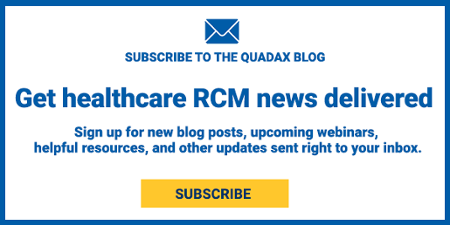Providers can take action to ensure potential RAC audits don’t lead to unpleasant surprises.
A legacy of the Medicare Modernization Act of 2003 and mandated by the Tax Relief and Health Care Act of 2006, the Recovery Audit Contractor (RAC) program recovers hundreds of millions of dollars for the Medicare Trust. Designed to identify and correct improper Medicare payments made to providers, RAC audits can cost healthcare providers time and money.
In their 2016 annual report, the Medicare Trust predicted the fund behind Medicare Part A, at the current rate of spending, is due for depletion in 2028.* Concern about this potential insolvency combined with RACs increasing ability to harness the power of big data has led to an enormous increase in RAC audits and their subsequent appeals during the last several years.
The Government Accountability Office (GAO) issued a report in June 2016 stating that there had been a 936% increase in appeals at CMS (Centers for Medicare & Medicaid), which ultimately led to a severe backlog in the appeals process and mounting criticism. In a recent court order, Health and Human Services (HHS) has been mandated to fix the Medicare appeals backlog by the end of 2020 and to meet annual backlog reduction goals during the interim.* While efforts to reduce the case backlog are underway, the RAC program continues to generate new RAC audits. RAC audits are not going away. *Since publication, the appellate court on Friday, August 11, 2017 overturned the recent district court ruling which ordered HHS to clear the Medicare reimbursement appeals backlog by 2020 stating that the order was “an error of law” and “an abuse of discretion."
UPDATE: HHS reduced the Medicare appeals backlog by 79 percent during the third quarter of FY 2021, putting the department ahead of schedule to clear the backlog. (RevCycleIntelligence 10/04/2021)
How do RAC audits play out for providers?
First, the provider gets a hardcopy letter notifying them of the audit. The contractor will then carry out one of two types of reviews: complex or automated. Complex audits must be done manually and typically involve a Manual Records Request/ADR letter. Automated RAC claim reviews do not require manual input, using powerful algorithms that can potentially land any given provider with fee-for-service Medicare claims in a stressful situation.
A big audit has the potential to cause a lot of damage, especially to smaller providers that may not have the cash to pay the amount indicated by the audit before appealing it. If a provider doesn’t pay the amount right away, it will start gaining interest at a very high percentage (ca. 10-12%). If that provider neglects to pay with the intent to appeal, and then loses the appeal, they will have to pay for the owed amount revealed in the audit as well as the interest accrued. On the other hand, if a provider pays right away, appeals the audit, then wins the appeal, CMS will reimburse the amount with interest. However, considering the current state of CMS’s appeals backlog, this decision is not always an easy one to make.
What can providers do to stay vigilant regarding RAC audits?
Fortunately, there are many steps providers can take to ensure that potential RAC audits don’t lead to any unpleasant surprises.
Stay informed
The CMS website is a good place to start along with the CMS’s three official auditing partners: Performant Recovery, Inc. (Region 1 and 5), Cotiviti, LLC (Region 2 and 3), and HMS Federal Solutions (Region 4). Each of these organizations offers information aimed at preparing providers for a RAC audit.
In addition to Medicare-sponsored resources, there are plenty of industry publications that regularly report on RAC audits and offer RAC-focused articles, blog posts, webinars, and other useful content. To name a few: Becker’s Hospital Review, RACmonitor, HME Business, For the Record Magazine, the American Medical Association, the American Hospital Association, and more.
Make sure your RCM partner uses RAC-specific edits
The best protection is prevention. Healthcare providers of considerable size often elect to partner with Revenue Cycle Management (RCM) organizations to manage everything from claim scrubbing, to bill collection, to appeals management. The best solutions out there will help you stay a step ahead of potential audits by automatically scrubbing your Medicare claims to make sure they are CMS-compliant before you send them.
Take advantage of AHA’s RACTrac Survey with a compatible vendor.
Though RAC audits put providers on the defense, providers do have a voice in negotiations with lobbyists, lawmakers and RAC contractors: the American Hospital Association (AHA). One of the AHA’s initiatives is the RACTrac Survey, which collects data submitted by participating providers and compiles quarterly reports meant to “assess the impact [of] the Medicare Recovery Audit Contractor (RAC) program on providers”.
The survey can be time consuming. But if done with the help of an RCM vendor certified by the AHA to be compatible with the RACTrac survey, your claim data can be automatically imported in a matter of seconds.
As the frequency of RAC audits continues to increase, so does the likelihood that your company will one day face one. They can seem daunting. But with the proper preparation, even a RAC audit can be surprisingly doable.
(*) source: 2016 Annual Report of the Boards of Trustees of The Federal Hospital Insurance and Federal Supplementary Medical Insurance Trust Funds, Actuarial Analysis of Present Value, page 71.


